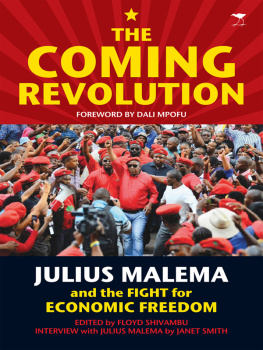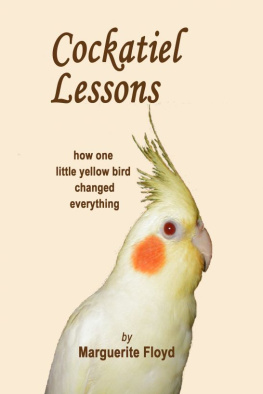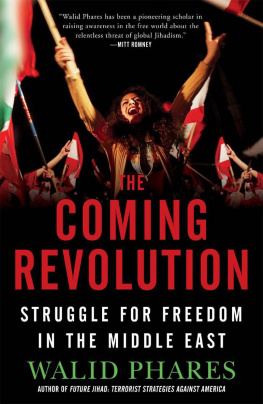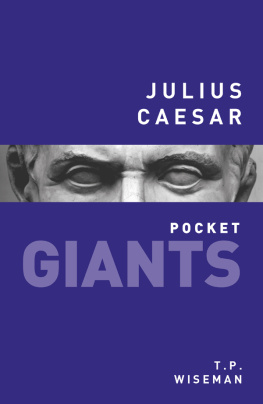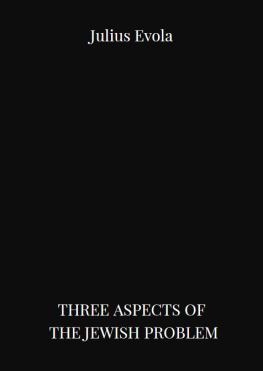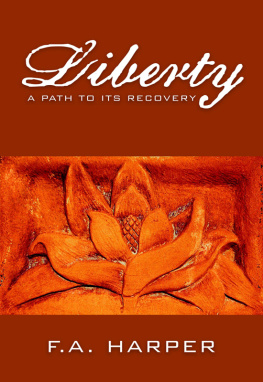Floyd Shivambu - The Coming Revolution: Julius Malema and the Fight for Economic Freedom
Here you can read online Floyd Shivambu - The Coming Revolution: Julius Malema and the Fight for Economic Freedom full text of the book (entire story) in english for free. Download pdf and epub, get meaning, cover and reviews about this ebook. year: 2014, publisher: Jacana, genre: Politics. Description of the work, (preface) as well as reviews are available. Best literature library LitArk.com created for fans of good reading and offers a wide selection of genres:
Romance novel
Science fiction
Adventure
Detective
Science
History
Home and family
Prose
Art
Politics
Computer
Non-fiction
Religion
Business
Children
Humor
Choose a favorite category and find really read worthwhile books. Enjoy immersion in the world of imagination, feel the emotions of the characters or learn something new for yourself, make an fascinating discovery.
- Book:The Coming Revolution: Julius Malema and the Fight for Economic Freedom
- Author:
- Publisher:Jacana
- Genre:
- Year:2014
- Rating:5 / 5
- Favourites:Add to favourites
- Your mark:
- 100
- 1
- 2
- 3
- 4
- 5
The Coming Revolution: Julius Malema and the Fight for Economic Freedom: summary, description and annotation
We offer to read an annotation, description, summary or preface (depends on what the author of the book "The Coming Revolution: Julius Malema and the Fight for Economic Freedom" wrote himself). If you haven't found the necessary information about the book — write in the comments, we will try to find it.
Floyd Shivambu: author's other books
Who wrote The Coming Revolution: Julius Malema and the Fight for Economic Freedom? Find out the surname, the name of the author of the book and a list of all author's works by series.
The Coming Revolution: Julius Malema and the Fight for Economic Freedom — read online for free the complete book (whole text) full work
Below is the text of the book, divided by pages. System saving the place of the last page read, allows you to conveniently read the book "The Coming Revolution: Julius Malema and the Fight for Economic Freedom" online for free, without having to search again every time where you left off. Put a bookmark, and you can go to the page where you finished reading at any time.
Font size:
Interval:
Bookmark:
First published by Jacana Media (Pty) Ltd in 2014
10 Orange Street
Sunnyside
Auckland Park 2092
South Africa
+2711 628 3200
www.jacana.co.za
Economic Freedom Fighters, 2014
All quotations in this book from EFF manifestos and documents reproduce the original wording and format as faithfully as possible.
All rights reserved.
ISBN 978-1-4314-1037-8
Also available as an e-book:
978-1-4314-1038-5 d-PDF
978-1-4314-1039-2 ePUB
978-1-4314-1040-8 mobi file
Cover design by publicide
cover photo by Phill Magakoe / Independent Newspapers
Job no. 002189
See a complete list of Jacana titles at www.jacana.co.za
Julius Malema and the fight for economic freedom

For Heath and Kei, and thanks to Lynne Stead Janet Smith
T O THE NAKED EYE , EVEN TO TALK about history in reference to an organisation like the EFF, which is hardly a year old, may sound presumptuous. That approach, however, would be taking a very narrow and linear view of history. In truth, the history of the EFF did not begin in July 2013 in Soweto nor in October 2013 at its launch rally in Marikana. In proper perspective, the history of the EFF began in April 1652 with the arrival of Jan van Riebeeck ostensibly to set up a vegetable garden and a refreshment station en route to trade in the East.
It is no coincidence or irony that the Dutch East India Company, under whose auspices Van Riebeeck operated, performed its first action by taking a small piece of land in present-day Cape Town and, as the saying goes, the rest is history. That the EFF champions above all the return of the land clearly demonstrates the connectedness of two events that happened some 361 years apart, the arrival of Van Riebeecks crew and the advent of the EFF.
Secondly, Van Riebeecks journey was no joy ride. It was in pursuit of what we refer to today as globalisation the idea that capitalist interests are free to roam around the globe to exploit, for profit, the natural and human resources of other lands, conquered either militarily or economically, or both.
The present-day similar exploitation of the mineral resources of South Africa by multinational companies, as well as the concomitant exploitation of predominantly African labour power in the process, can also be traced directly to the same or similar intentions of the Dutch East India Company, without which South African history would certainly have turned out differently and there would have been no EFF as we now know it.
There is one history, connected at different points, or, as Marx and Engels aptly put it in the Communist Manifesto : The history of all hitherto existing societies is the history of class struggles.
An appreciation of the above provides a short-cut to the understanding of both the class character of any revolution, as well as its internationalist dimensions. Hence, there can be no such thing as socialism in one country! These insights should give a different and broader perspective to the significance of this relatively short book.
Thus, the history of the EFF, or any revolutionary movement for that matter, can really be traced even further back than 1652: from prehistoric times, some millennia BC, through the Bronze Age, the Ancient Empires, European Feudalism and the first wave of Bourgeois Revolutions in Europe. These stages were followed by the rise of Industrial Capitalism and Imperialism until the more modern eras of World Wars and the Cold War, which preceded the recent rise of neoliberalism under the stewardship of Reagan and Thatcher, which was in turn only brought to a halt by the crisis of capitalism in 20079. (The latter has brought back some sanity about the role of the state, with even the most ardent neoliberals grudgingly revising their anti-statist dogma.)
All these events and epochs have a direct relevance to the present stage of capitalism in South Africa and elsewhere in the world. Indeed, they similarly have a direct bearing on the state of socialism in South Africa and the world! The South African revolution is embedded in that reality. Arguably, not by coincidence, the attainment of political freedom in South Africa, led by the ruling African National Congress, took place within the context of the collapse of the Eastern Bloc countries and the largely Stalinist regimes that governed them.
This led directly to the abandonment of the two-stage theory in terms of which the ultimate destination was a socialist system anchored on nationalisation, the return of the land and the like, in favour of the more fashionable neoliberal ideological outlook. The rest is history.
In the ensuing 20 years, capitalism itself suffered its own actual or near collapse, ironically being rescued by large doses of state intervention and effective nationalisation of the banking sector.
It is a sign of the failure of the South African ruling elite to read the signs of the current times that they have chosen the politically suicidal route of clinging to right-wing neoliberal dogma in the face of contradicting evidence and the growing suffering of the working class and the poor.
As before, there can be no arresting the wheels of history. The oppressed class will ultimately triumph. No amount of military and police brutality or other forms of repression can defeat an idea whose time has come.
Understanding the emergence of the EFF, in collaboration with like-minded revolutionary forces of the Left, as a direct response to this historical mission, will put your reading of this book in its proper perspective.
This does not pretend to be any more definitive than a particular perspective of history. History is, by its nature, and properly so, contested terrain, even within the EFF itself. This should be encouraged as any fresh or different perspectives, provided they are genuinely and honestly held, can only enrich the never-ending search for the tools of comprehensive analysis that ought to be the constant preoccupation of all those who call themselves revolutionaries.
Happy reading.
Dali Mpofu
EFF: Commissar for Justice and Special Projects
7 March 2014
A NY REFLECTION ON S OUTH A FRICAN politics in the past five years which ignores the contribution of Julius Malema and the generation of economic freedom fighters he leads will be incomplete. In the past few years, most reflections that try to do so always miss the point, and rely heavily on distorted media reports and sound bites. It has meant that they inevitably arrive at the wrong conclusions on exactly the content and nature of the politics Julius Malema is in pursuit of, and thus fail to understand the struggle for economic freedom.
It is not always advisable to separate individuals from the struggles they lead, but as Lenin argued, personal qualities of political figures their theoretical preparation, skill, courage and determination can determine the outcome in a given situation. There are critical moments in human history when the quality of the leadership can be the decisive factor that tips the balance one way or another. Furthermore, it is correct that although individuals cannot determine the development of society by the force of the will alone, yet the role of the subjective factor is ultimately decisive in human history.
We isolate Commander-in-Chief Julius Malema in this book, not because we believe in the cult of personality, nor in turning leaders of the revolution into demigods. We do so because it is important to understand the contribution Julius Malema has made in the struggle for economic freedom. And as is evident in the following chapters, Julius Malema does not exist in isolation; he is grounded in and organically connected to the struggles of the working class and the poor in South Africa. Even in instances where he holds tremendous organisational influence, he always seeks guidance from the people, and from the democratic processes of organisations within which he exists.
Font size:
Interval:
Bookmark:
Similar books «The Coming Revolution: Julius Malema and the Fight for Economic Freedom»
Look at similar books to The Coming Revolution: Julius Malema and the Fight for Economic Freedom. We have selected literature similar in name and meaning in the hope of providing readers with more options to find new, interesting, not yet read works.
Discussion, reviews of the book The Coming Revolution: Julius Malema and the Fight for Economic Freedom and just readers' own opinions. Leave your comments, write what you think about the work, its meaning or the main characters. Specify what exactly you liked and what you didn't like, and why you think so.

